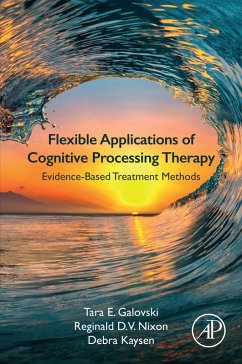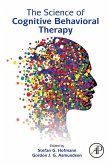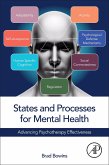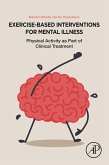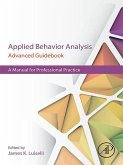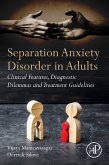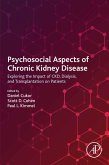Flexible Applications of Cognitive Processing Therapy: Evidence-Based Treatment Methods provides a detailed roadmap on how to apply therapy to a wide-range of complex patients. Starting with an exploration of the development of CPT, the book then segues into a practical discussion on flexible adaptations of therapy. Dissemination and implementation of CPT is covered next, and the book concludes with directions for future research. It provides clinical guidance on treating PTSD with patients who express high levels of anger, shame, guilt, and other forms of emotionality, while also providing insight on research on the effectiveness of CPT on other comorbid disorders.
The book also reviews the outcomes of clinical trials of CPT inside and outside the United States, including examining modifications and outcomes in a diverse array of patient populations.
- Traces the history and development of cognitive processing therapy (CPT)
- Outlines empirically-supported modifications to CPT
- Looks at international applications of CPT in diverse patient populations
- Discusses common challenges to therapy outcome and how to overcome them
Dieser Download kann aus rechtlichen Gründen nur mit Rechnungsadresse in A, B, BG, CY, CZ, D, DK, EW, E, FIN, F, GR, HR, H, IRL, I, LT, L, LR, M, NL, PL, P, R, S, SLO, SK ausgeliefert werden.

